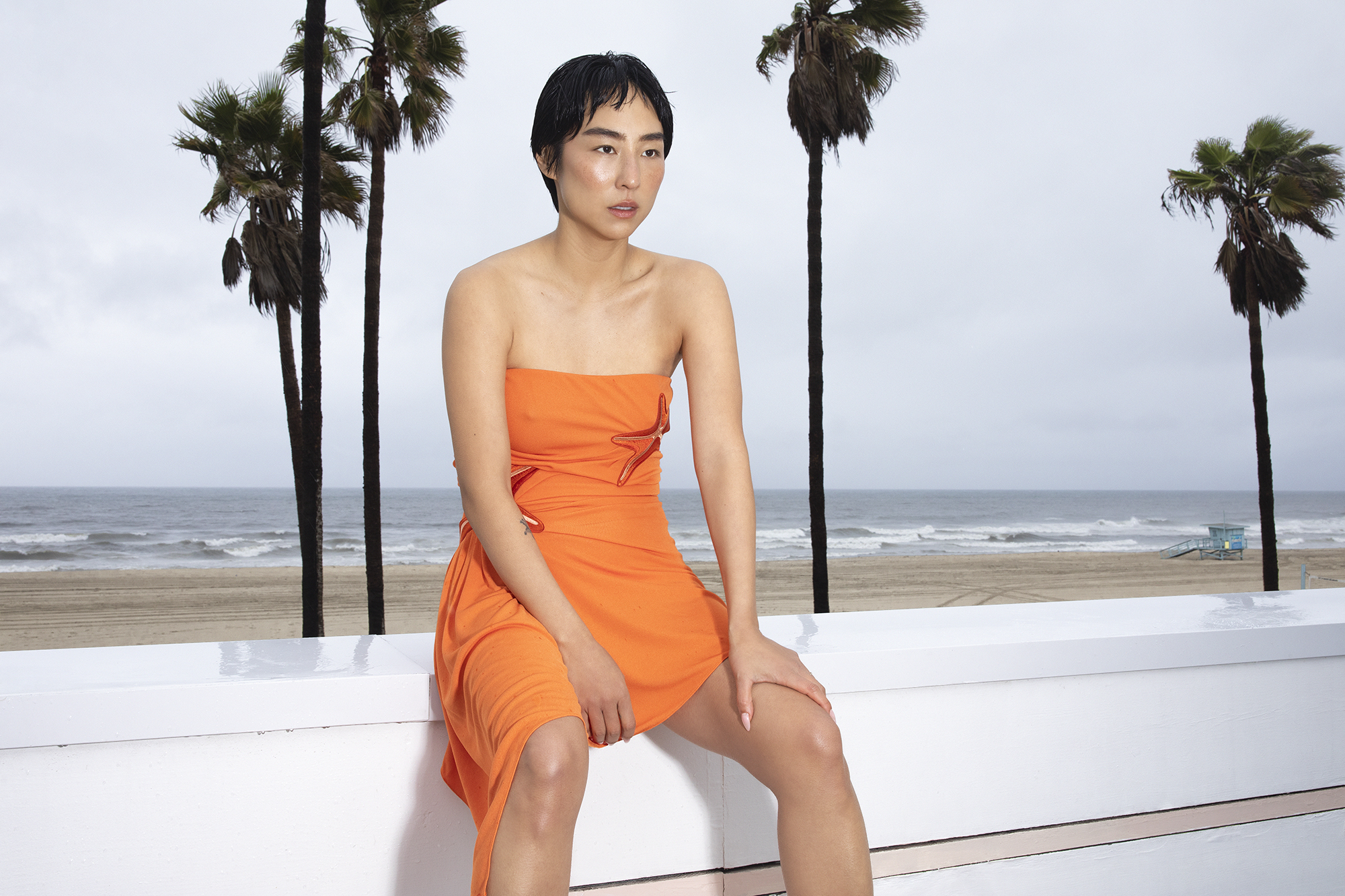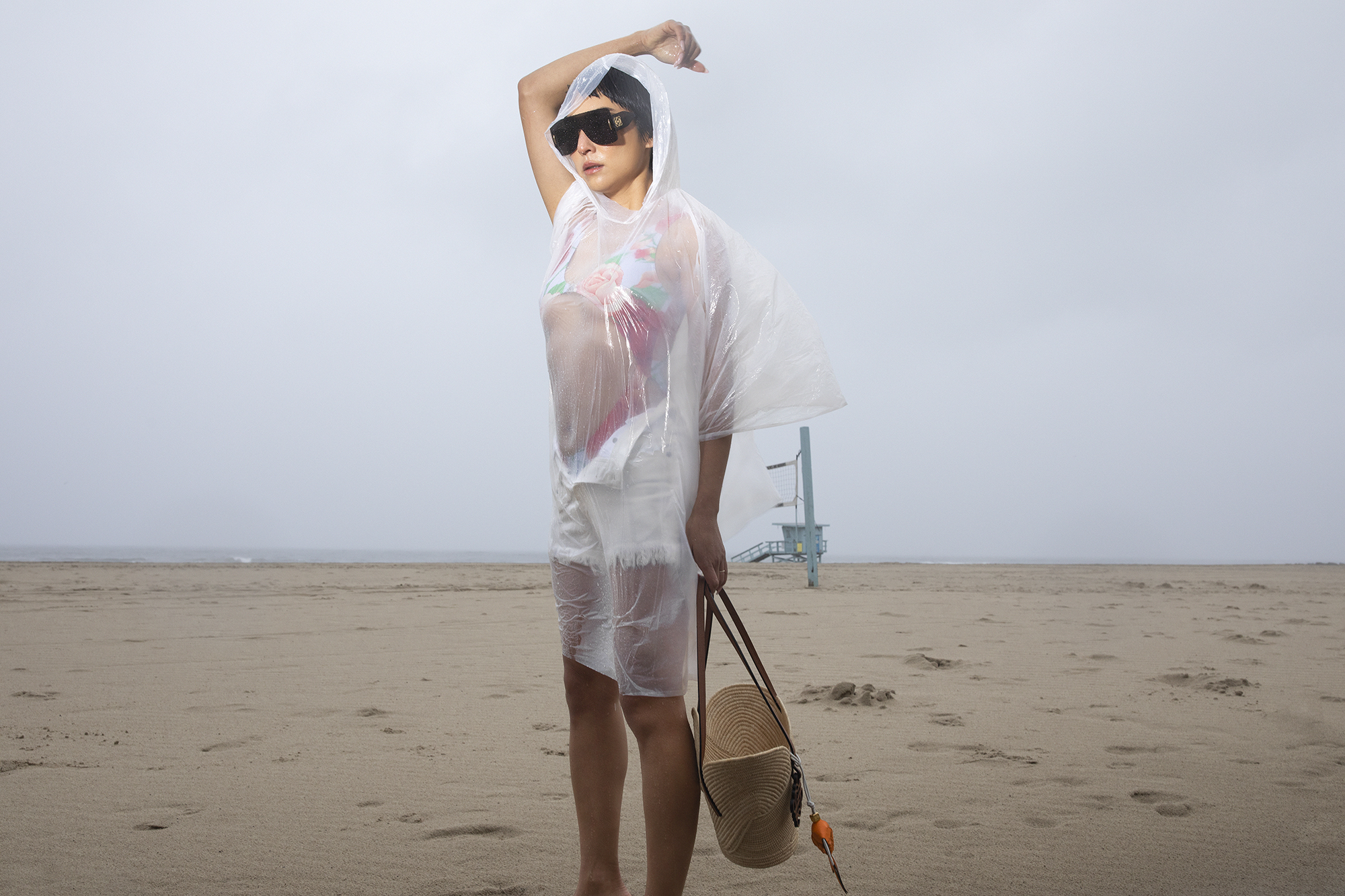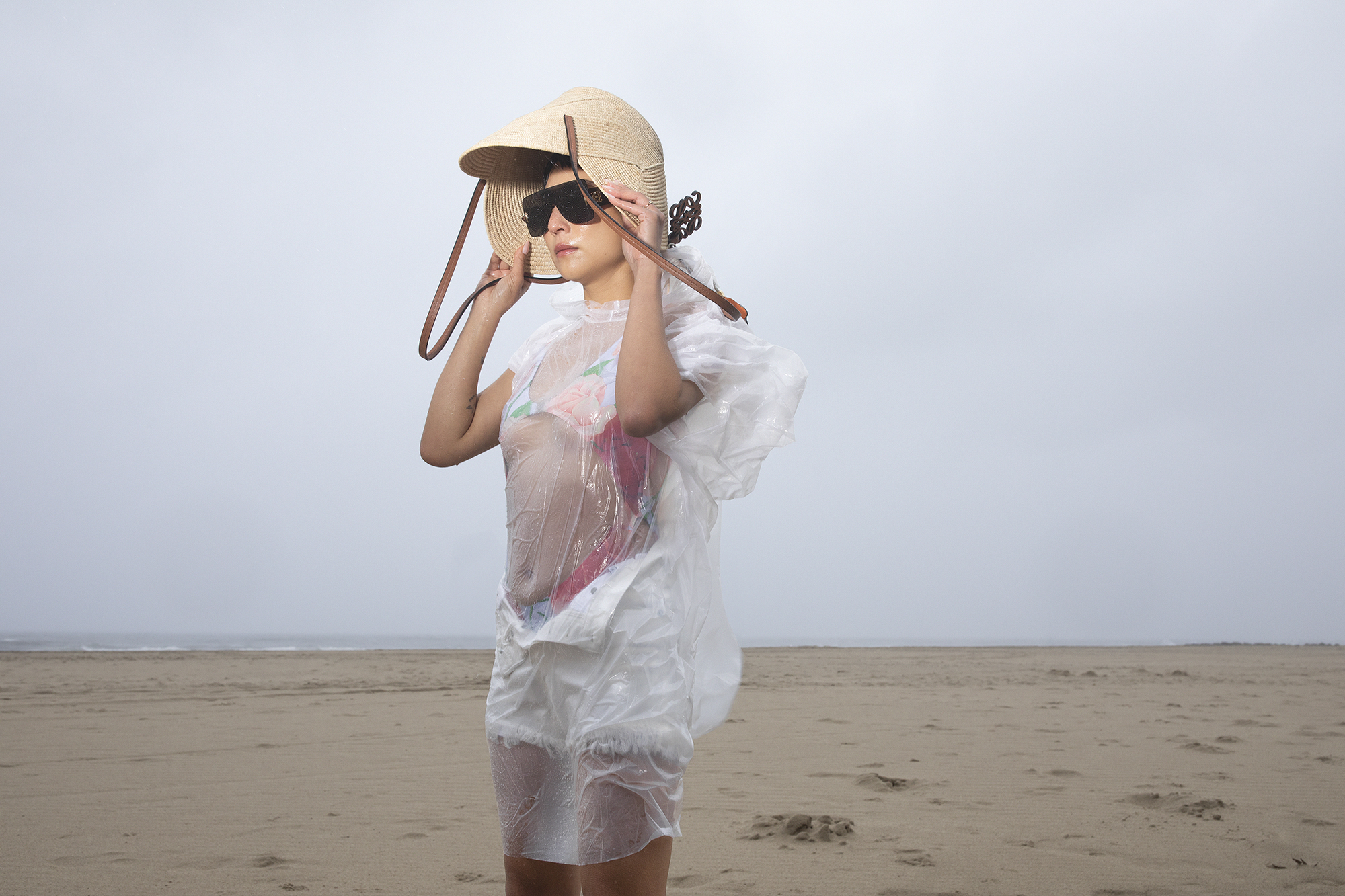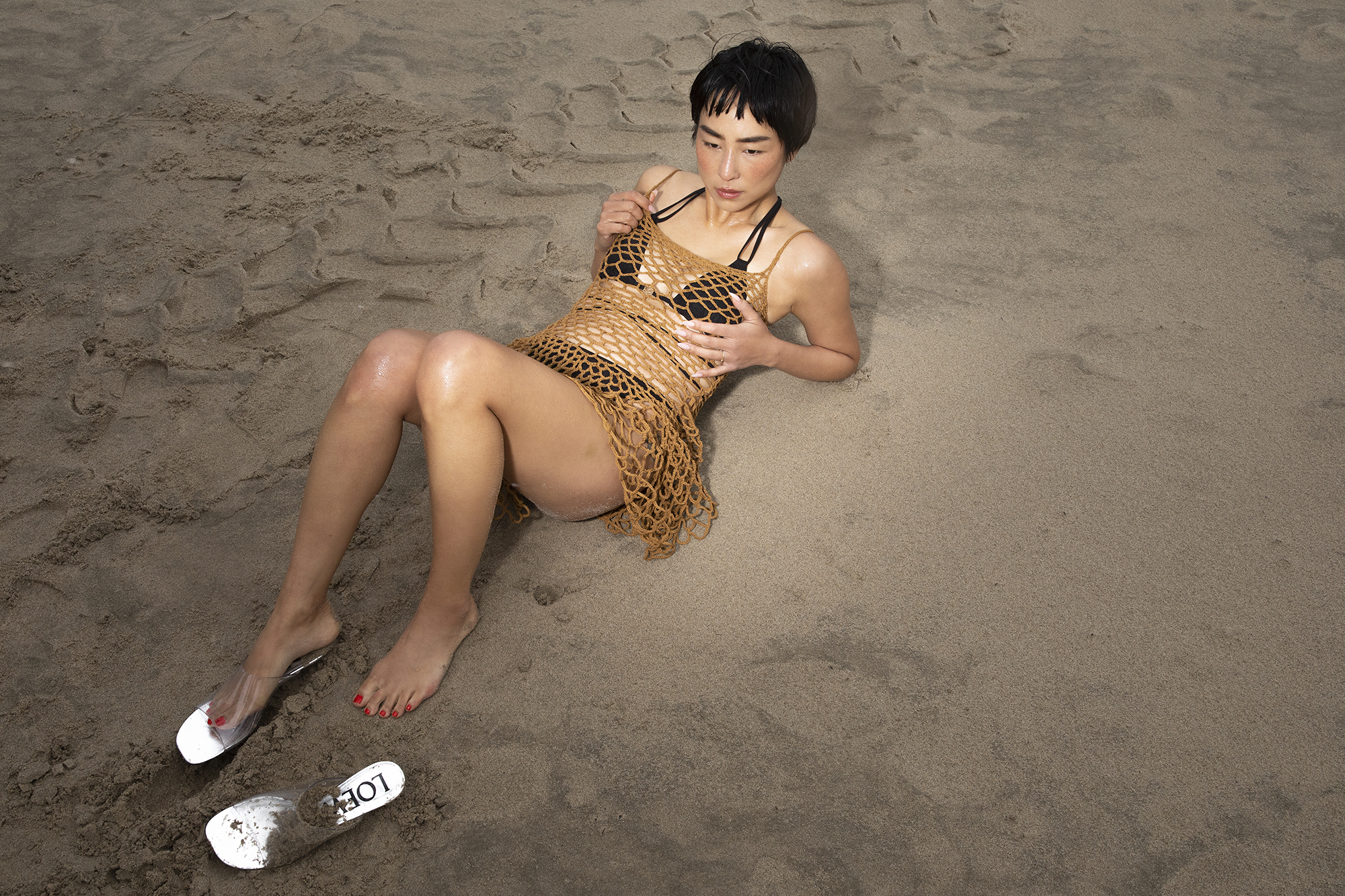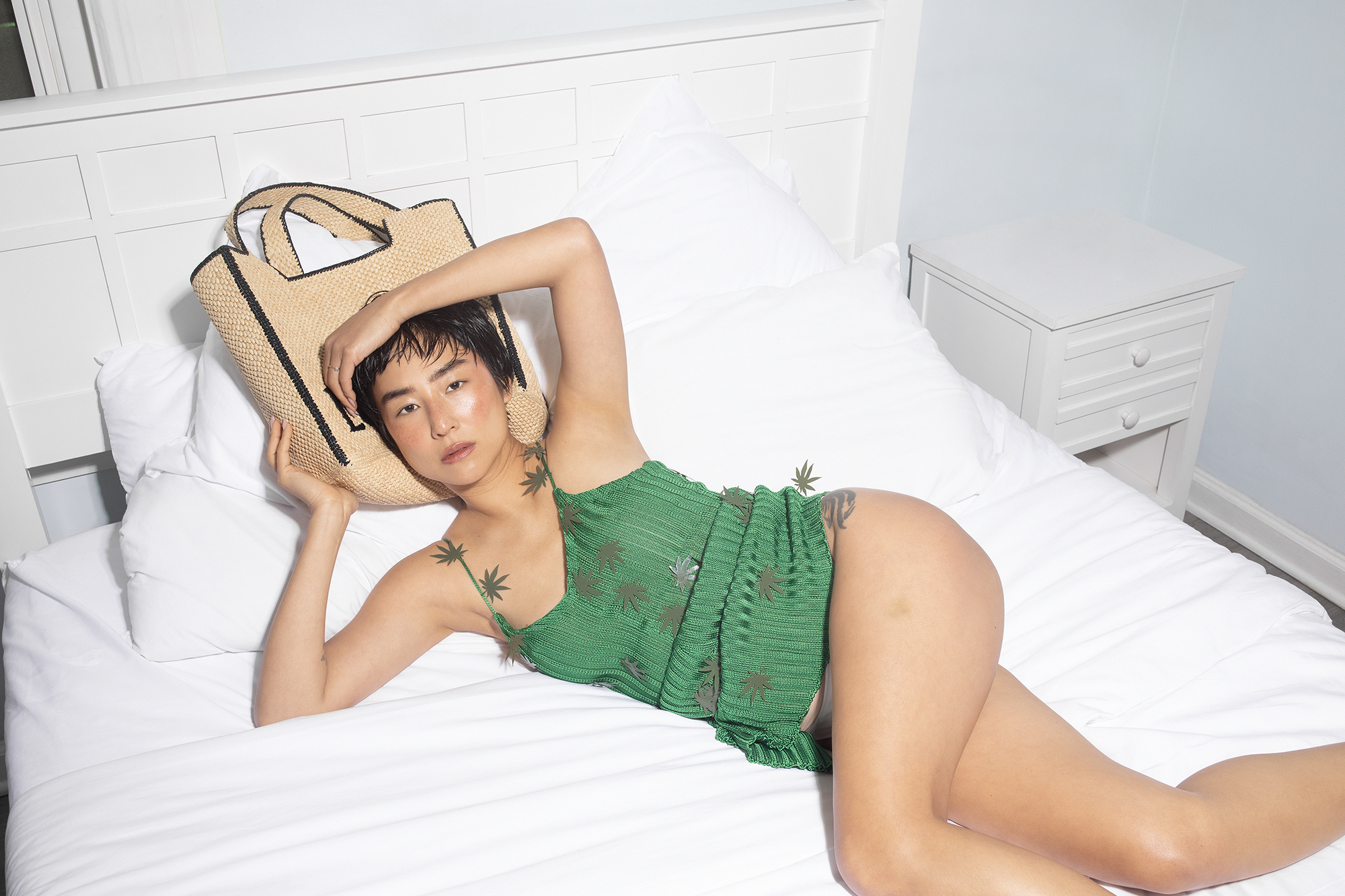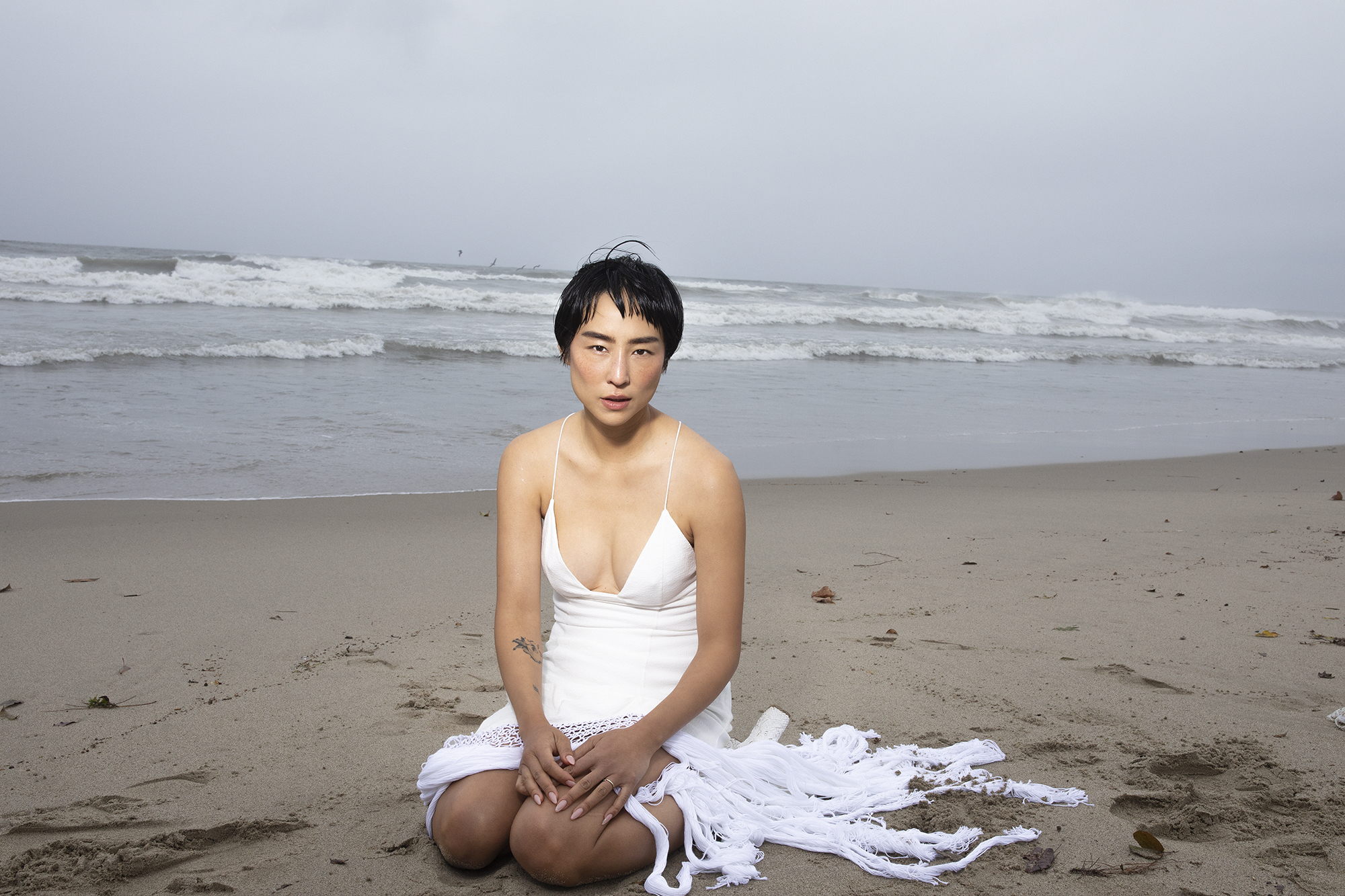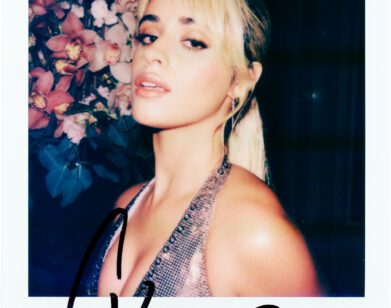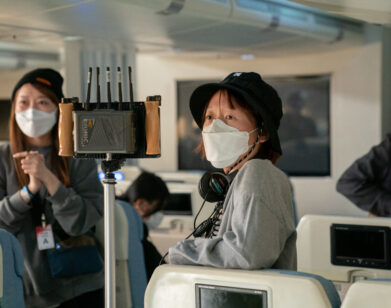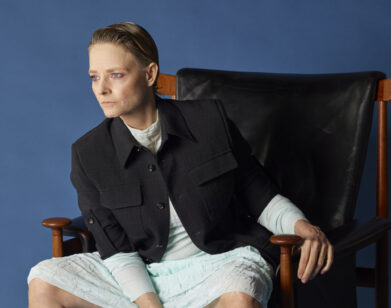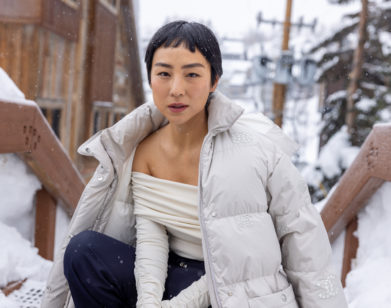ARRIVAL
Greta Lee and Steven Yeun Have an Emotionally X-Rated Conversation
When Greta Lee got on a Zoom with the actor Steven Yeun, she was in Paris and two months removed from the week that changed everything. A professional scene-stealer in shows like Russian Doll and The Morning Show, Lee’s career blew up at Sundance when her movie Past Lives wowed the entire festival and made the actor an early awards contender. Yeun watched the movie with his wife the night before, so he was eager to talk to his friend about her professional—and personal—glow up.
———
STEVEN YEUN: Greta!
GRETA LEE: Hey Stevie! You’re in a car! Nice office.
YEUN: This is my office. [Laughs] You know this life.
LEE: I absolutely know that life.
YEUN: Where are you? You look like you’re in a fancier office right now.
LEE: Yeah, my office has turned fancy, just temporarily. I’m in Paris for work and play—mostly play.
YEUN: Oh, beautiful. I saw your lovely film [Past Lives], and you crushed it.
LEE: Oh man, when did you see it?
YEUN: Last night with Jo [Yeun’s wife]. We were so enamored by it. The thing that amazed me the most was you guys touched such a delicate thing and landed it in such a beautiful way. So I want to ask, how are you doing? I can relate to the feeling of touching something previously unseen. That is always an interesting ride.
LEE: Yeah. Over the last few months you’ve been checking in so generously. You’ve had one eye on me, just watching and observing. Gently and delicately providing useful books or ideas and checking in with a little bit of a knowing side-eye. Because you’re familiar with treading these kinds of waters in terms of doing something that feels a little exposing, a little transformative, and personal.
YEUN: Yeah. Part of the life of an Asian-American actor is there are so many things that you don’t even know are possible. That’s what I feel you might be experiencing, and I’m watching you do it with such grace, so I wonder how that experience is as you open new doors and reveal unexpected things?
LEE: For the greater part of my professional life I’d spent a lot of time trying to make myself make sense to others, or to construct a narrative that is digestible, that is accessible, that is legible. And then for whatever reason—I think maybe it’s just aging, or family, or I moved to L.A. and quit social media—I took some steps back. It’s not like I had made some sort of conscious choice to go into hiding, but something had shifted for me around the time of Past Lives where I really felt like, “I don’t want people to know me. I don’t want to be known entirely.” There’s a freedom in that. Then when this movie happened, to have that sort of reverse, to come back out of the cave, was weird, frankly, and is something I’m trying to figure out.
YEUN: I hear you.
LEE: I like to joke that this movie feels X-rated to me. Emotionally X-rated. And culturally—I mean, most people don’t even know that I speak Korean. The general reaction when I first started telling people that I was working on this was a look of concern, like, “But how good is your Korean?”
YEUN: You’re getting at this thing that’s maybe the toughest part, which is, how do you let go to expand? How do you let go of the way in which you’re held by others that feels comfortable, especially in this job? And for you to reveal the power that maybe not everyone was overtly conscious of—I’ve said this to you before, especially when we first met. I was like, “Yo, you’re super powerful.” Where do you feel like that power is rooted these days?
LEE: It’s my greed for life-living. I’ve had my ideas of keeping an arm’s length in terms of my relationship with the business. And to a certain extent, having to live that life professionally of going through side doors, going around the back, or pivoting this way and coming back around, I feel like I’ve already had a long ride. You may feel this way too, but coming from comedy, from doing stage work, doing bit parts and characters and tonally such different things, I now feel like if I’m going to do this, I don’t want to lie to myself. It’s hard not to get super abstract talking about this stuff.
YEUN: That’s so true. The thing I respect is you didn’t skip any steps. You grinded it out, and you find yourself here. What’s it been like to live in the awareness of the journey as you land in this moment?
LEE: I don’t know what this moment is. I’m constantly looking to you like, “Hey, you got anything? What is this?”
YEUN: Oh, I don’t know shit. [Laughs]
LEE: And it’s so great, we can just hang out in our not-knowing-shit– ness! But on a certain level, getting a chance to do this film—with Sundance and then Berlinale and how things have been received—is feeling a little bit of that warm embrace I’d wanted as a child. In so many different respects it’s a total dream. However, I feel like I’m wide awake, because I’m a grownup and because of all the labor that it took to get here, so there are no pretenses. There’s no pretending that I’m a starlet who just started and got a break. So it feels good. Even on the most basic level, we talk about coming from comedy, and technically this was so different, and that was such an interesting struggle.
YEUN: Right? Let’s talk about that. I can only speak for myself, but there’s something interesting about comedy that cuts you as a dramatic actor in a very specific way.
LEE: Yes. In a better way, no?
YEUN: Yeah. It’s a self-awareness that builds from the world of comedy where the parameters are surprisingly more rigid than people think.
LEE: Oh yeah. Just on a technical level, listening. One of my biggest pet peeves is working with another actor where they have that glazed-over look in their eyes and they’re kind of speaking through you. I can smell that so quickly, and it’s because of comedy. You have to be in it, on your feet, ready to pivot, and timing matters so much. So that stands out to me and carries over to doing dramatic work. However, this was so fuck- ing hard and so humbling. Just in terms of the pacing. I felt my body really resisting how slow it felt. It felt like I was trying to train at altitude and my heart rate had to drop. And we’re shooting on film too, so that made me feel even more like, “We can’t waste this.” Like, “You’re just going to roll?” So then I would start talking or moving and [director Celine Song] would gently pull me aside and be like, “Hey, stop doing that. Why are you talking right now?” But that is one of the gifts of the movie, the experience of making it, and with the awesome John Magaro and Teo Yoo—really feeling their encouragement and allowing myself to just exist.
YEUN: It’s so great watching those beautiful moments of you just existing. The way you flowed through the screen and your presence on camera—that’s what I always think of when I say, “Your power.” You naturally have it, and it’s fun to be able to just objectively see that. I want to pivot so that it doesn’t feel like I’m going down a hole. What’s up between New York and L.A.? How are you feeling? You’re new to L.A.
LEE: Dude, I can’t pretend like that transition has been simple or easy. It’s been a period of massive change, massive disruption personally, spiritually, community-wise, and just finding our bearings again. But I’m a farmer now. Did you hear about our chickens? We’re down to one.
YEUN: Coyote?
LEE: I think. It’s so fucked up. But it’s okay, we made an emotional contract that we weren’t going to get attached, which is why they’re named after food, like Nugget or Tikka Masala or Pot Pie. So we’re going to replenish the chickens. But when I’m not on set, I come home and enter the portal of parent life, and then put on my gardening gloves and get to work on the land. It’s essential. I need that. I’m all about the child-rearing propaganda. Do the kids thing, do the family thing. If anything, it just makes you a better artist. I really believe that. So much of what we do, we have no control over, and kids are the greatest way to hold up a mirror to all of that, on how to let go.
YEUN: You’re so right. The duality that you’re living in that role, in that space—to go, “Where am I?” and to be vulnerable enough to go there and show that—is super fucking cool.
LEE: It’s cool now, but in the moment, it was terrifying. I’ve never been put to task in that way. Just showing yourself falling in love— that is tough. It’s humiliating, in reality. When you see someone fall- ing in love, it’s not beautiful—it’s cringy. And feeling like, “Oh my god, those guys, John and Teo, had to deal with me just ripping my hair out.” Feeling like, “I can’t do this, I can’t show that, I’m allergic to myself in this form.” I’m fighting so much of my own biology, everything leading up to this, my life as a modern woman in America. After I saw it for the first time I asked Celine, “Do we have to show this movie?” [Laughs] I was like, “No, please. I can’t allow this.”
YEUN: I know what you mean. It’s not a reflection of your direct life, but you went and experienced a thing and you’re showing it to all of us.
LEE: Yeah. It’s the in-between stuff, too. It’s living that life of being in that purgatory space. So much has been said about the immigrant experience, and being bicultural, but what that’s really like, to show that, felt private, and it still does. It feels really illicit to have to show that publicly. We spend our whole lives training ourselves to keep it tucked away, and now it’s coming out. It feels unprecedented and dangerous, which must mean on some level that it’s great.
YEUN: Yeah. I’m so thrilled for you. It’s not easy, but you’re a straight-up actor.
LEE: Really? I was going to retire and try to become a blueberry farmer.
YEUN: [Laughs] But you blew it. You guys lost all your chickens. So sorry, you’ve got to keep doing this.
LEE: Look, the chicken business is robust. I see what the prices are at Trader Joe’s right now. Never say never. By the way, I’m reading the [Jiddu] Krishnamurti book [On Fear.]
YEUN: How is it? It’s an aggressive cover.
LEE: There’s a lot of, not judgment, but people notice when you’re reading this book.
YEUN: Yeah, you can’t roll around with that casually.
LEE: No, you can’t. And it’s so funny because it’s so great and I get so much out of being part of the Steven Yeun book club, but I get to a certain point where I’m saying petty childish stuff—like, “I’m not afraid, you’re afraid!”—the deeper I get into it.
YEUN: I was worried about that, like, “Oh, is she going to think that I think she’s afraid?” I hope me handing it to you wasn’t like, “You’re afraid.” I was like, “Here’s a book that I fuck with.”
LEE: No, I’m totally afraid. And when I’m shouting, “I’m not afraid, you’re afraid!”—I’m not shouting at you personally, I’m shouting into the void of the universe. But I’m also like, “Wait, am I a camel? No, you’re the camel.” I’m really exposing all of your literature— what was that book?
YEUN: The primal astrology one?
LEE: Yeah, the one that’s like, everyone’s an animal.
YEUN: Yeah, primal astrology. But you know what I use those for? Because I’m terrified. As we keep venturing into the unknown and the void, I need to grip onto some handlebars at times to be like, “Explain this shit to me, please.”
LEE: Sure. This is like when I did the Myers-Briggs personality test. I found out that I’m INFJ [Introverted, Intuitive, Feeling, and Judging], which is described as one of the most idealistic personality types, but also people with this personality type can be the most challenging to work with, to get to know on a deeper level. I retook the test over and over again and would go to my therapist crying because I really felt like that was evidence of how difficult I am or just, on a weird level, my Koreanness. Did you ever do this test?
YEUN: I did. I think all mine come back to just being like, “You’re boring and extremely lucky,” so I don’t really dig in too much. But I love yours. I think what I’d love to say as my final piece is thanks for being you and for existing.
LEE: Thank you, my friend. I have so much love for you. You make me excited about the future. You know, the future, capital F.
———
Hair: Amber Duarte using Oribe
Makeup: Yasmin Istanbouli using Chanel Beauty At The Wall Group
Nails: Brooklynn Rhayne
Photography Assistant: Brandon Sheffield
Fashion Assistant: Kennedy Smith
Production Coordinator: Gabriel Bruce
Special Thanks: Venice On The Beach Hotel

